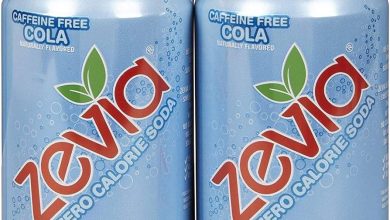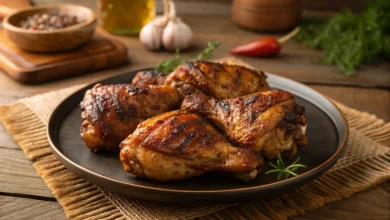Duck Liver (Domesticated, Raw) – Nutritional Overview
Duck liver is a delicacy that not only boasts rich, savory flavors but also delivers a range of essential nutrients. Whether prepared in pâtés, spreads, or other gourmet dishes, duck liver offers a nutrient-dense addition to your culinary repertoire. This section will break down the key nutritional values of raw domesticated duck liver, helping you appreciate its versatility and health benefits.
Nutritional Information for Raw Duck Liver (per 100g):
| Nutrient | Amount per 100g |
|---|---|
| Energy | 136 kcal |
| Protein | 18.74 g |
| Total Fat | 4.64 g |
| Saturated Fat | 1.44 g |
| Carbohydrates | 3.53 g |
| Fiber | 0.0 g |
| Sugars | 0.0 g |
| Calcium | 11 mg |
| Iron | 30.53 mg |
| Magnesium | 24 mg |
| Phosphorus | 269 mg |
| Potassium | 230 mg |
| Sodium | 140 mg |
| Zinc | 3.07 mg |
| Copper | 5.96 mcg |
| Manganese | 0.258 mg |
| Selenium | 67 mcg |
| Vitamin C | 4.5 mg |
| Thiamin (B1) | 0.562 mg |
| Riboflavin (B2) | 0.892 mg |
| Niacin (B3) | 6.5 mg |
| Vitamin B6 | 0.76 mg |
| Folate | 738 mcg |
| Vitamin B12 | 54 mcg |
| Vitamin A | 11,984 mcg |
| Vitamin E | 0 mg |
| Vitamin D2 | 0.0 mcg |
Health Benefits of Duck Liver
-
High-Quality Protein: Duck liver is an excellent source of protein, contributing 18.74 grams per 100g. Protein is essential for muscle repair, immune function, and overall body maintenance.
Related Articles -
Rich in Vitamins: Particularly abundant in Vitamin A (11,984 mcg), duck liver supports vision, skin health, and immune function. It also contains substantial amounts of B vitamins, including B12, which is vital for red blood cell formation and nerve health.
-
Iron Content: A standout nutrient in duck liver is iron (30.53 mg per 100g), which is crucial for oxygen transport and energy production. This makes it an ideal food for individuals with iron deficiencies or those in need of an iron boost.
-
Mineral-Rich: The liver offers valuable phosphorus (269 mg), potassium (230 mg), and magnesium (24 mg), all of which contribute to bone health, muscle function, and overall metabolic processes.
-
Antioxidant Properties: Duck liver also contains selenium (67 mcg), a powerful antioxidant that helps protect cells from oxidative damage, and vitamin C (4.5 mg), which plays a role in collagen production and skin health.
-
Folate and B Vitamins: With high levels of folate (738 mcg) and niacin (6.5 mg), duck liver can help support healthy cellular function, energy production, and proper digestion.
Allergen Information
Duck liver is naturally free from common allergens such as gluten, dairy, and soy. However, individuals with a sensitivity to poultry or organ meats may need to exercise caution. Always check for individual ingredient sensitivity if preparing dishes that incorporate additional components like alcohol, dairy, or spices.
Dietary Considerations
- Paleo: Duck liver fits well into the paleo diet, offering a nutrient-dense, whole-food option that aligns with paleo principles.
- Keto: Low in carbohydrates (3.53g per 100g), duck liver can be incorporated into keto or low-carb diets, making it a good choice for those seeking to reduce their carbohydrate intake.
- Gluten-Free: Duck liver is naturally gluten-free, suitable for anyone avoiding gluten.
- Low-Carb/High-Protein: With a balanced macronutrient profile, duck liver works for individuals following a high-protein, low-carb approach.
- Rich in Iron: An excellent source of heme iron, duck liver is particularly beneficial for individuals with iron deficiency or those needing an iron-rich diet.
Preparation Advice
Raw duck liver is best when prepared carefully, as its rich flavor and delicate texture can be easily lost through overcooking. It can be sautéed, grilled, or blended into smooth pâtés or mousse, pairing well with a variety of herbs, spices, and complementary ingredients such as onions, garlic, and wine.
When handling duck liver, ensure it is kept at the appropriate temperature and cooked thoroughly if consumed as part of a dish. For pâtés or spreads, refrigerate and consume within the recommended time frame for freshness and safety.
Conclusion
Domesticated raw duck liver is an exceptional ingredient with a rich nutritional profile that offers numerous health benefits. Packed with high-quality protein, essential vitamins and minerals, and rich in iron, it’s a valuable addition to your recipe collection—whether you’re preparing elegant spreads, hearty dishes, or simply seeking a nutrient-dense treat. As with all organ meats, it’s best to enjoy in moderation to make the most of its robust nutrient content.










